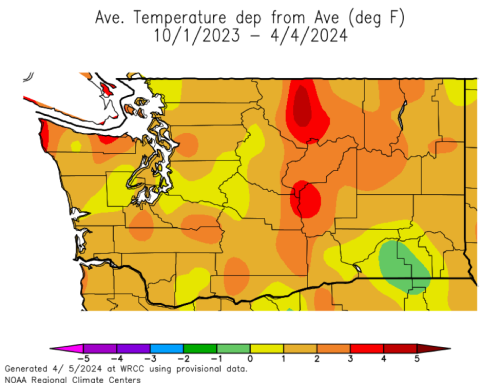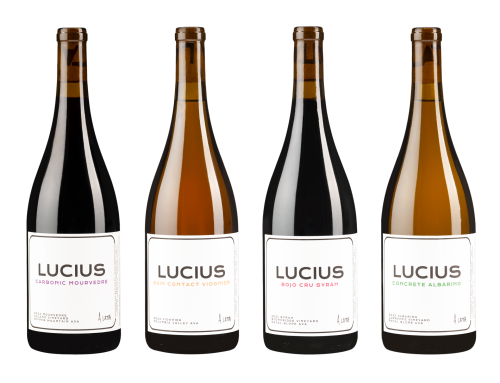“It’s somewhere between retirement and a job,” Greg Peiker says starting his winery, Quiddity Wines, in Woodinville.
Peiker worked at nearby Microsoft on the operations side of the software business for nearly 20 years. Realizing he was approaching retirement, he started to consider what to do next. Having long been interested in food and wine, Peiker looked into Northwest Wine Academy’s winemaking program and started taking classes in the evening.
“I was encouraged by [NFL quarterback] Russell Wilson’s father when he said, ‘If somebody is going to play in the Super Bowl, Russ, why not you?’” Peiker says of his decision to pursue winemaking.
As he worked his way through the school’s courses and was close to finishing the program, Peiker realized he had a serious problem. He needed to do an internship.
“It hadn’t even occurred to me.”
So he reached out to friend and fellow winemaker William Grassie (William Grassie Wine Estates), who also went through the Northwest Wine Academy program, to ask what he did for his internship. Grassie’s answer would change the course of Peiker’s life.
“He basically said to me, ‘I’ve got a winery and all this equipment I’m not using. Why don’t you, for your internship, go buy grapes, and I will mentor you as you make wine?’”
For his fruit, Peiker looks to Elephant Mountain and Sugarloaf vineyards, two sites in the Rattlesnake Hills appellation. While a number of well-known winemakers source fruit from these vineyards, they are not, as yet, household names the way some local vineyards are. This was a deliberate decision on Peiker’s part.
“If you go to those vineyards, then your wine tastes like everybody else’s wine,” he says. “A little bit different is good.”
To date, Peiker has largely focused on Rhone-style offerings, though he also added a Carménère in the 2019 vintage. Many of the wines are 100% varietal, with no new oak used. Peiker refers to wines from Tablas Creek and Syncline as well as Sparkman’s Wonderland Grenache as inspirations.
“Do I gravitate toward that style because that’s the wine I make, or do I make that wine because it’s a style I like?” Peiker asks rhetorically.
His initial decision to use no new oak was pragmatic but now very much informs the wine style. “I couldn’t afford new oak barrel, so Bill [Grassie] loaned me some neutral oak barrels,” Peiker explains. “Now I’m really happy I made that choice.”
Remarkably, Peiker’s first wines – his internship project – would turn out to be Quiddity’s inaugural releases from the 2018 vintage. When I first tasted them, they were some of the most compelling wines I tried that year. (I will include my Wine Enthusiast reviews for the 2018 and 2019 wines below, some of which are now sold out.) How did Peiker make wines so soulful and with such a strong voice right out of the gate?
“I’ve done a little brewing,” Peiker says. “We also used to do some home winemaking. In high school, my father and I made some terrible fruit wine.”
The Quiddity wines all have names that are “core elements of kind of a well-lived life.” For example, Audentes: daring, venturing, risking. Meliora: always better, or for the pursuit of the better. Cur Non: an ode to Russell Wilson’s father’s ‘Why not?’
And the winery name? Peiker thought through places and people and other things that were significant to him, but nothing seemed quite right. Then a word appeared on his phone from a ‘Word of the Day’ app. Quiddity: the inherent nature or essence of someone or something.
“I was like ‘That’s it! Boom! Done.’”
Having now retired from Microsoft, Peiker opened the Quiddity tasting room in Woodinville’s Warehouse District in August of 2020. While he says he has newfound respect for small businesses where owners must do essentially everything, he also finds the work rewarding.
“Sometimes I’m in the tasting room, and it’s a really slow day. Then, an hour before closing, a family comes in, and they are completely into the wines. They start ranting and raving. It makes my whole week.”
Those rants and raves are apt. So is the winery’s name.
Quiddity is easily one of the most exciting new wineries to open in Washington in recent years. The winery’s reds are exquisitely made. (As with most wineries starting out, the whites are a work in progress). The lack of new oak makes them vivid and achingly pure. There’s ripeness to the fruit, but there is balance as well. All are micro-produced at about 100 cases or less, with the winery moving from 500 cases in 2018 up to 1,000 cases in 2022. Line-priced at $35, they are all exceptional values given the level of quality.
Of course, it’s one thing to make a great set of inaugural releases under a watchful eye. It’s another to follow that up with high quality wines year after year. However, the first three vintages for Quiddity have shown consistently high quality and have been a complete delight.
In short, the Quiddity wines are Washington Rhone-style wines at their essence, with a voice all their own. Why not indeed?
REVIEWS
At Northwest Wine Report, all scores come from blind tastings in varietal/style sets. Read more about this site’s process for rating and reviewing wines. Read about the Northwest Wine Report rating system and special designations. Read about how to interpret scores.
Images courtesy of Quiddity Wines.









Fully agree! I have tried reds and whites from Quiddity and enjoyed all the depths of flavor. The names too are interesting. Loved reading the origin story as well. Always nice to know history.